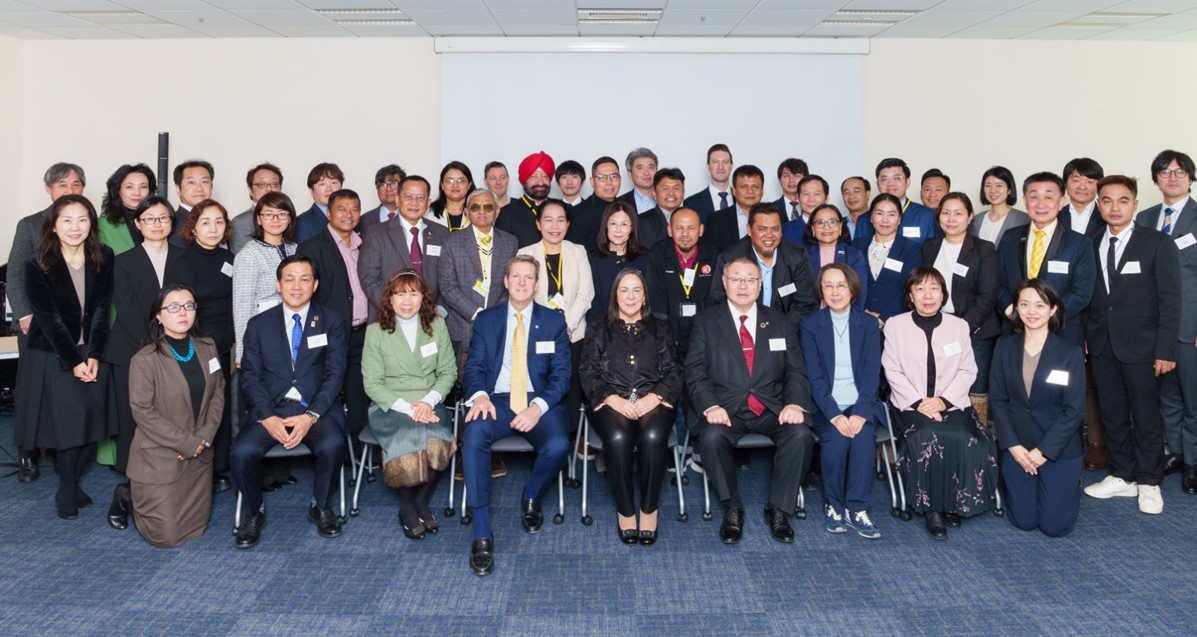 |
|||||||||||||
|
|||||||||||||
Cross-Country Bipartite Dialogue on Responsible Business Conduct
AREA Press Release No. 0316/2025: March 28, 2025
Dr.Sopon Pornchokchai, Ph.D. Dip.FIABCI, MRICS
President, Agency for Real Estate Affairs (AREA)
On February 5-6, 2025, Dr.Sopon Pornchokchai participated at the the ILO’s “Cross-Country Bipartite Dialogue in Electronics Sector on Responsible Business Conduct and Decent Work” in Tokyo as a Board Member of the Employers Confederation of Thailand (ECOT).
The dialogue brought together 27 representatives from seven countries, namely India, Indonesia, Lao PDR, Japan, Malaysia, Thailand and Vietnam, from both at national-level and sectoral-level and explored a more coordinated approach in promoting sustainable and responsible business practices in the Electronics sector. In addition, observes from Japanese workers’ and employers’ organizations joined, namely from Japan Council of Metalworkers' Unions (JCM), Japanese Electrical Electronic & Information Union (JEIU) and Japan Electronics and Information Technology Industries Association (JEITA).
Executive Summary Discussions focused on deepening understanding of the concerns faced by sectoral employers’ and workers’ organizations and identifying opportunities for cooperation and partnerships. Participants also explored on the establishment of a structured bipartite dialogue mechanism to enhance coordination at the enterprise, sectoral, and national levels.
Key Themes and Outcomes: • Strengthening Bipartite Dialogue and Coordination: Participants emphasized the need for stronger coordination through structured dialogue platforms to address labour rights issues, promote RBC, and overcome fragmented communication. Participants recognized the importance of capacity-building and improved communication to foster trust between workers and employers. Employers highlighted the need for greater awareness of trade unions’ roles and a stronger counterpart for meaningful dialogue, while workers advocated for stronger legislation to protect workers’ rights.
• Promoting International Frameworks and Capacity-Building: A shared understanding was promoted around key international frameworks in promoting RBC, including the ILO MNE Declaration, the UN Guiding Principles on Business and Human Rights, and the OECD Guidelines for Multinational Enterprises.
• Scaling Good Practices and Supporting SMEs: Participants underscored the value of developing an Asia-Pacific model for RBC and scaling enterprise-level good practices. Supporting SMEs emerged as a key priority, given their limited awareness and resources for implementing human rights due diligence (HRDD).
• Sector-Specific Solutions for RBC Implementation: To address RBC challenges, participants proposed sector-specific approaches and practical solutions, including, national- and sectoral-level dialogues, joint risk assessments by workers and employers, hotlines for information and grievance mechanisms.
This dialogue laid the groundwork for country-level actions and future bipartite collaboration, reinforcing the role of workers’ and employers’ organizations in driving responsible business practices in the electronics sector.


